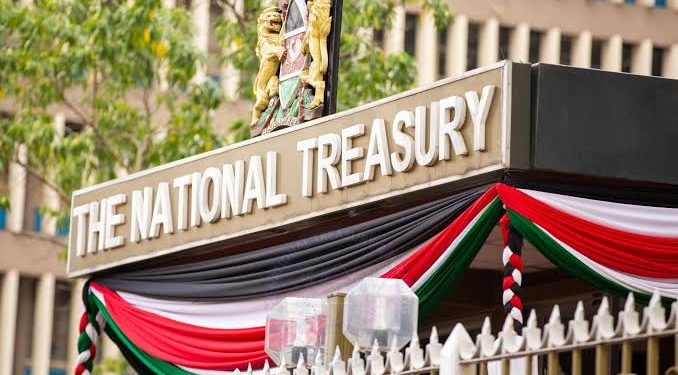The National Treasury plans to buyback at least half of the USD 2.0 million Eurobond that will mature in June 2024. The move is aimed at reducing future repayment obligations as well as taking advantage of the current low prices, as the yields on the bond have soared to 12.1% as of June 28, 2023, from the 6.9% yield when the bond was issued in June 2014.
Read more: Kenya Not at Risk of Defaulting On Eurobond – IMF Director
There has been a lot of skepticism about the government’s ability to meet its obligation to service the 10-year Eurobond due to the dwindling of the forex reserves, with the forex reserves remaining below the statutory requirement of at least 4.0 months of Import cover between the months of January and May 2023.
Read more: High Eurobond Yield Piles Pressure on Kenya Debt Servicing
Consequently, the rating of Kenya’s outlook by S&P Global was downgraded to negative from stable on February 20, 2023, while Moody’s Credit Rating Agency downgraded Kenya’s long-term foreign currency rating to B3 from B2 with a negative outlook on the back of increased liquidity risk on May 20, 2023.
The depreciation of the Kenyan currency has also weighed down on foreign debt repayment as the country has had to increase its allocation of revenue to debt repayment. This brings about a vicious cycle of further currency depreciation as the demand for foreign currency increases, which consequently raises the alarm of a possible default.
Read more: There Is No Significant Decrease in Lending, IMF Chief Says
During the month of May 2023, the International Monetary Fund (IMF) announced that it had reached a staff-level agreement with the Kenyan authorities that will allow Kenya to access financing of up to USD 410.0 million once the review is completed in July 2023. Additionally, during the month of June 2023, the government was able to secure two loans from the World Bank and also from a syndicate of international banks of USD 1.0 billion and USD 500 million.
The funds from the international institutions are expected to be partly used to settle part of the buyback of the Eurobond and also improve the forex reserve. The USD 1.0 billion from the World Bank that was received in June 2023 enabled the government to raise its forex reserves to USD 7.5 billion from USD 6.5 billion as of the end of May 2023.
Read more: President Ruto’s Government Public Debt Crisis
Going forward, it is expected that the government may have to settle for higher yields if it is to consider to issuing another Eurobond, given the lowest yielding Kenya’s Eurobond is the 12-year Eurobond that was issued in 2021 with a yield of 10.3%.
However, the government seems to be shying away from foreign debts, with the recent budget for the financial year 2023-2024 increasing its domestic borrowing target by 37.0% to Kshs 0.6 tn from Kshs 0.4 bn in the financial year 2022-2023, while at the same time reducing the foreign borrowing target by 66.8% to Kshs 0.1 bn from 0.4 bn the previous year.
Email your news TIPS to editor@thesharpdaily.com

















